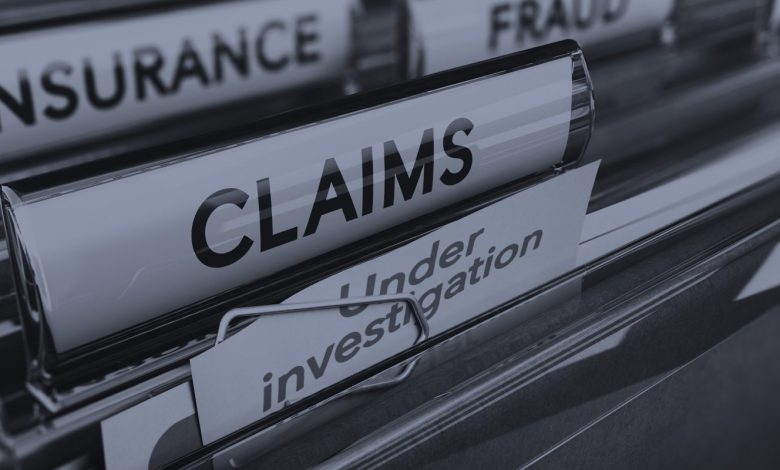Legal Remedies for Insurance Claim Disputes
Understanding Your Rights and Options When Insurance Claims Go Wrong

If you’ve been following our recent blog posts, especially the one where we broke down the different types of insurance policies and common mistakes to avoid when filing an insurance claim, then you already know how crucial it is to get the process right.
But what happens when, even after doing everything right, your insurance company still denies your claim or drags the process out endlessly, that you almost want to give up?
This is where things often turn into a dispute. But not to worry, we’ll walk you through what an insurance dispute looks like, the legal framework for resolving those disputes, and the remedies available to you as an insured.
Common Insurance Claim Disputes
Insurance claim disputes can be incredibly frustrating, especially when you believe you’ve fulfilled your end of the bargain. Here are some common issues that lead to disputes between an insured and insurance providers:
1. Claim Denial:
This is the most common issue. Insurance companies may deny a claim, coming up with excuses like policy exclusions, missed deadlines, or insufficient documentation, even when the claim seems valid.
2. Delayed Payouts:
Perhaps you filed a claim months ago, and you’re still waiting for your insurer to approve your claim, yet no response. Sometimes, insurers delay payouts intentionally, hoping the claimant will give up or settle for less.
3. Underpayment of Claims:
In some cases, instead of denying the claim outright, the insurer agrees to pay, but offers far less than what you believe you’re entitled to.
4. Cancellation of Policy After a Claim:
Some insurers may try to cancel your policy after you file a claim, accusing you of misrepresentation or non-disclosure of facts.
5. Interpretation of Policy Terms:
Disputes often arise over what the policy actually covers. Insurers may interpret certain clauses differently from how you understood them at the time of purchase.
Now that we’ve seen where the conflicts usually start, let’s talk about how the law can help you resolve them.
Legal Framework for Resolving Insurance Disputes
Thankfully, you’re not powerless. There are several legal pathways and mechanisms in place to help you resolve insurance-related disagreements.
1. Internal Dispute Resolution
Before you take legal action, most insurance companies have an internal dispute resolution process. This typically involves a review of your claim by a senior officer or claims review team.
While this step may seem basic, it’s important to maximise internal options first. It shows good faith on your part if the issue later moves to external channels.
2. Complaint to NAICOM (National Insurance Commission)
If you’re in Nigeria, the National Insurance Commission (NAICOM) plays a supervisory role over all insurance activities. If you’re not satisfied with the outcome of your insurer’s internal process, you can take the matter to NAICOM. They can intervene, investigate the insurer’s conduct, and ensure compliance with industry regulations.
3. Arbitration
Arbitration is a popular alternative dispute resolution (ADR) method. It involves a neutral third party, usually called an arbitrator, who reviews the case and makes a binding decision. It’s usually quicker and less expensive than going to court.
In most insurance contracts, there’s often an arbitration clause that binds both parties to resolve disputes this way. If it’s there, it’s usually your first legal remedy before thinking of litigation.
4. Litigation (Court Action)
When all else fails, you can sue. Taking the matter to court may seem intimidating, but it’s often the most appropriate course when the insurer is acting otherwise. Your legal counsel will help you file a case and represent your interests.
Nigerian courts, particularly the civil divisions, regularly handle insurance-related disputes, and a well-documented case can lead to a favourable judgment.
Other Legal Remedies You May Be Entitled To
Depending on the specifics of your case, the court or arbitration panel may award any of the following:
1. Payment of the Claim: If it’s determined that your claim was valid, the insurer may be ordered to pay the full amount due.
2. Interest on the Delayed Claim: Some judgments may include interest for the period the insurer delayed such payment.
3. Payment for Damages such as Emotional Distress: In extreme cases where the insurer acted unfairly or maliciously, the court may award additional compensation for emotional distress or punitive damages.
4. Restoration of Cancelled Policies: If your policy was unjustly cancelled, a court may order its reinstatement.
Conclusion
Insurance claim disputes can be emotionally and financially draining, but they don’t have to be fought alone. Whether you’re dealing with a denied claim or being offered less than you’re due, you have legal options that can help you through the process.




